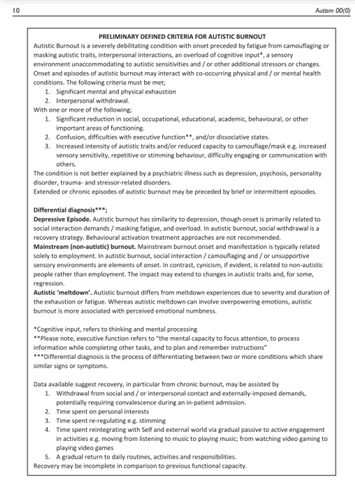A video on Autism Burnout (fatigue) from the Pete Wharmby, a great autistic speaker and writer.
https://www.youtube.com/watch?v=JNDQ2glqHj8
All the internal and external factors autistic people face can take its toll over time - mentally worn down from masking, enduring difficult situations, anxiety about the present/future, trauma from the past, and then non-autism things that life throws at you. It is good to be aware of it, even if its not happen to you know it might in the future.
It is not well researched or understood, so getting help for it is difficult, but like any fatigue its a good idea to be kind to yourself, mentally and physically.
If you aren't familiar with Pete then watch his other videos if you can.




